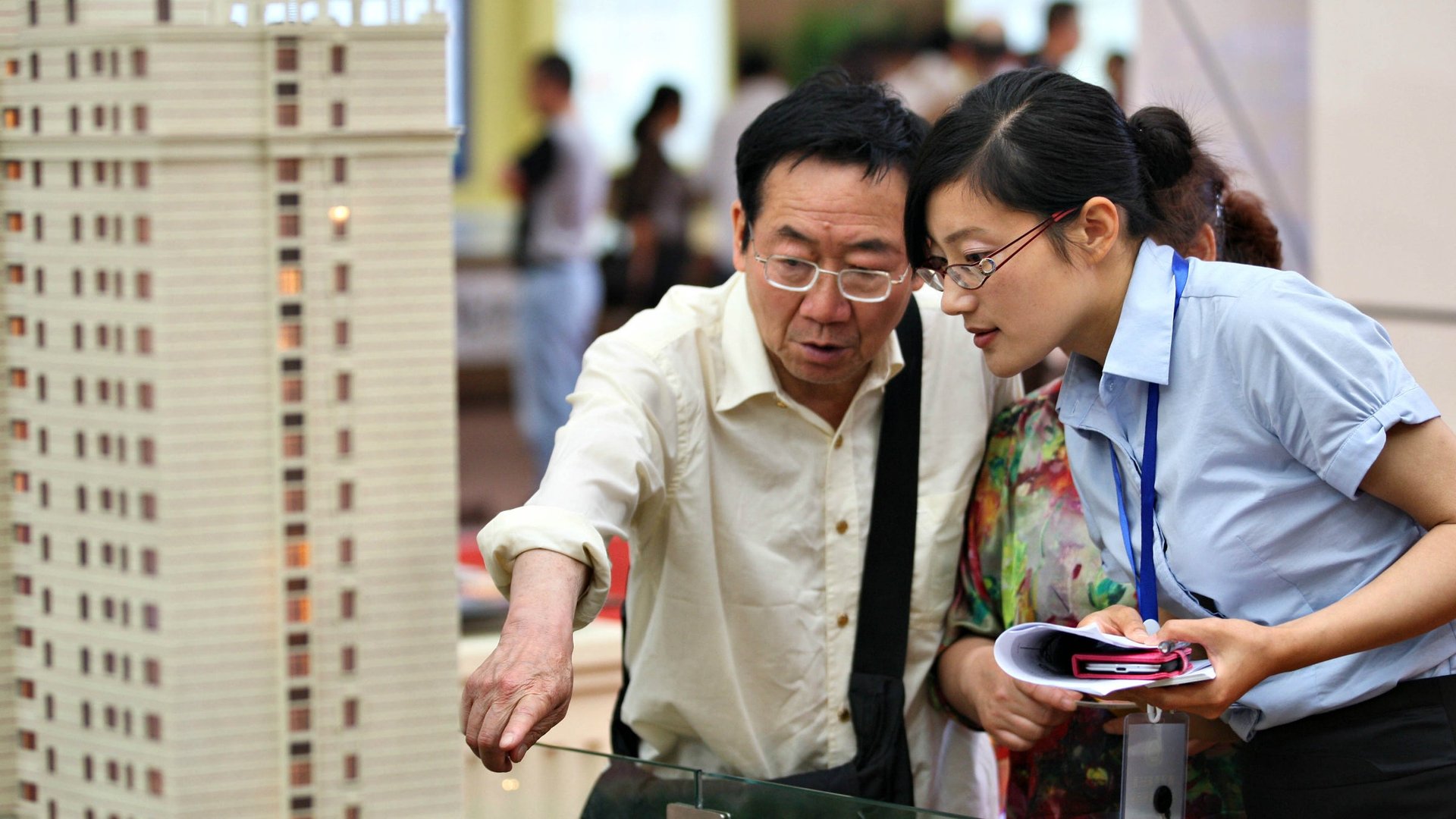There’s something murky about China’s housing market—and it’s not the pollution
Average new home prices in 70 major Chinese cities rose 6 percent in May from a year earlier—a two year high, according to calculations by Reuters. In Beijing, prices rose a staggering 11.8% in a month—faster than at any point since January 2011 and way up on April’s increase. Bizarrely, a newly released Beijing police survey also showed that last year over a quarter of residential properties in the capital were vacant. What gives?


Average new home prices in 70 major Chinese cities rose 6 percent in May from a year earlier—a two year high, according to calculations by Reuters. In Beijing, prices rose a staggering 11.8% in a month—faster than at any point since January 2011 and way up on April’s increase. Bizarrely, a newly released Beijing police survey also showed that last year over a quarter of residential properties in the capital were vacant. What gives?
The explanation could be that speculators are pouring money into Beijing apartments but are leaving them empty, or they’re being used as pieds-à-terre by wealthy Chinese who live elsewhere—the police survey classifies residences as vacant if no one is home for six months or longer.
It’s hard to get a read on China’s national housing trends because the government stopped releasing full data sets in 2011 and now just gives price changes in 70 cities, from which interested parties have to draw their own conclusions. The latest of these came from Beijing-based venture capitalist Cha Li, who said that there are 6,000 Beijing “super-landlords” who own over 300 properties each. The statistic went viral and caused outrage on the microblogging service Weibo until a probe by the government mouthpiece People’s Daily persuaded Li to backtrack. Still, no party official has come forward to offer convincing alternative figures.
Even if the statistics are wobbly, the consensus is that China’s urban house prices are spiraling out of control—fueled in large part by the country’s massive credit bubble. Beijing officials have reacted to rising prices by tightening rules on the permit system governing the pre-construction sale of properties, restricting second-home ownership and requiring deposits for those still eligible. But government efforts clearly have not had the desired effect—even as many of the expensive new homes are sitting empty.